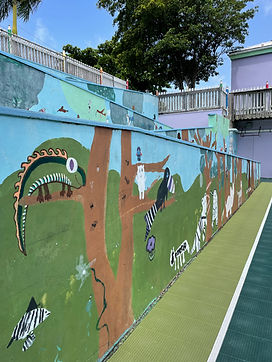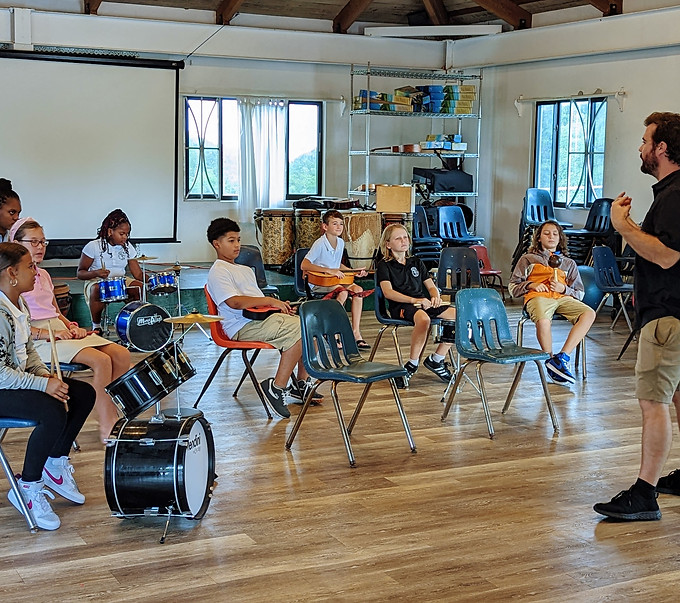


PRIMARY GRADES
Kindergarten, First, Second Grades / Ages 5 - 8
In kindergarten, first, and second grade academic rigor means emphasizing the building blocks of independent learning. Students grow from emergent to fully independent readers. Our math program emphasizes the importance of conceptual understanding of math operations through experiences.

ACADEMIC RIGOR
In kindergarten, first and second grade, academic rigor means emphasizing the building blocks of independent learning. Students grow from emergent to fully in dependent readers by the end of second grade through a blended literacy program that combines a phonics based decoding program with literature circles. In second grade, as students progress from "learning to read'' to "reading to learn" they are introduced to structured vocabulary study.

MATHEMATICS
The primary math program at Gifft Hill School emphasizes the importance of conceptual understanding and students' ability to speak confidently about what they are doing to solve a problem and why. The school uses Singapore Math methodology and materials. With this approach our teachers introduce new mathematical concepts using concrete representa tions (manipulatives), then as students’ conceptual confidence grows they transition to using pictorial representations, and ultimately they help students apply abstract operational algorithms (formulas).

HISTORY
History and Social Studies standards prioritize questioning, analyzing, and comparing information over the rote memorization of facts. The island is our classroom, and instruction makes the most of the unique geographic location, political status, and living history of St. John to introduce and reinforce instructional objectives.

STEAM / WEEK
Weekly STEAM projects encourage students to apply math and science concepts and skills to engineering problems, often using art to represent their findings. Similarly, STEAM projects incorporate science and engineering standards focused on providing opportunities to question, analyze, and compare observations about the world. Even at the primary level, students begin talking about the experimental design process using developmentally appropriate vocabulary and procedures.

CLASSROOMS
Classroom learning centers allow students to engage in a variety of self-paced exploration stations including read to self, read to someone, read to teacher, audiobook listening stations, phonics games using classroom technology; as well as teacher directed small group and whole class instruction.

ENRICHMENT PROGRAMS
Enrichment programs include weekly classes in EARTH (Education and Resilience Through Horticulture), Art, PE, Music, and Spanish. These classes are designed to provide crosscurricular connections and creative outlets for all children.

COMMUNITY AS CLASSROOM
Students work with the National Park Service, the St. John Historical Society, and local businesses to extend learning into the living laboratory of our island and our community.
.png)